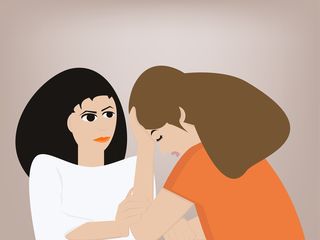Eating Disorders
Benefits of Self-Disclosure in Eating Disorder Treatment
Are disclosures a boundary violation or an asset to treatment?
Posted January 15, 2020 Reviewed by Gary Drevitch

To disclose or not disclose: This is a question many therapists have pondered.
Therapists are often trained in a model of minimal self-disclosure. The theory, dating back to Freud, is that when a patient knows very little about the therapist, they will project their own “transference,” which can then be analyzed to further the treatment. But a lot has changed since Freud’s day. Modern psychological theories tend to favor a more interpersonal and collaborative approach. And besides, Freud wasn’t contending with Google and all of the personal information that is accessible by the touch of a few keystrokes. Nevertheless, the question of if, when, and how much a therapist should self-disclose remains controversial.
The issue of self-disclosure tends to come up quite a bit in the eating disorder field, where studies indicate that up to half of all therapists specializing in the treatment of eating disorders have a personal history of recovering from their own eating disorder. Should therapists share that they also struggle with or have recovered from an eating disorder?
A recent qualitative research study by Wasil et al (2019) may provide some insight. The researchers interviewed 13 participants who had recovered from an eating disorder to identify factors that influenced participants’ decision to begin treatment and move forward with their recovery process. Of the 13 participants, 11 reported that hearing from recovered individuals (either a therapist or peers) affected their motivation to recover despite the fact that recovery self-disclosure was not specifically referenced in the interview questions. Participants expressed that therapist self-disclosures were beneficial because they provided evidence that recovery is possible, offered insight into the recovery process, and helped patients feel more connected with and understood by their therapist.
Like many qualitative studies, this study has various limitations (including a very small sample size) and is not generalizable to the larger public. That being said, this study offers interesting insight into ways that therapist self-disclosures about their own eating disorder recovery can be used therapeutically with certain patients. It also provides evidence for the benefit of hearing recovery stories from peers, which therapists can facilitate in treatment. Though more research is needed to explore these variables further, this study gives us an interesting look into how therapists can utilize their own recovery history to potentially motivate clients’ recovery.
Of course, it is impossible to know the impact of a self-disclosure on the therapeutic process until the disclosure is shared, in which case it’s impossible to put the cat back in the bag, so to speak. So I would recommend being thoughtful about what you choose to share. And moderation is probably key. Most of us have either heard stories of or had the unfortunate experience of being in treatment with an oversharing therapist; sometimes the disclosures become so extensive that the therapy becomes focused on the therapist rather than the patient and may even pull the patient into feeling like they need to take care of the therapist — certainly not a dynamic that most of us want to get involved with.
What do you think? Is a therapist’s disclosure of a personal eating disorder helpful or hindering treatment?
References
Wasil, A., Venturo-Conerly, K., Shingleton, R., & Weisz, J. (2019, March 14). The Motivating Role of Recovery Self-Disclosures From Therapists and Peers in Eating Disorder Recovery: Perspectives of Recovered Women. Psychotherapy. Advance online publication. http://dx.doi.org/10.1037/pst0000214


